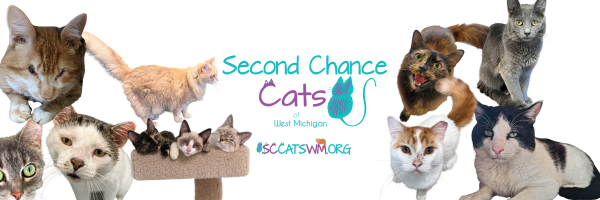Effective Ways to Support Stray and Feral Cat Colonies
If you have a feral cat, please check our:
*Unfortunately, we do not accept intakes from the public at Second Chance Cats of West Michigan
Transform the lives of stray and feral cats with Second Chance Cats – your go-to guide for practical solutions and compassionate care!
Discover how to help stray and feral cats thrive with Second Chance Cats! This guide will help you learn about cozy shelters, TNR programs, and socializing kittens!
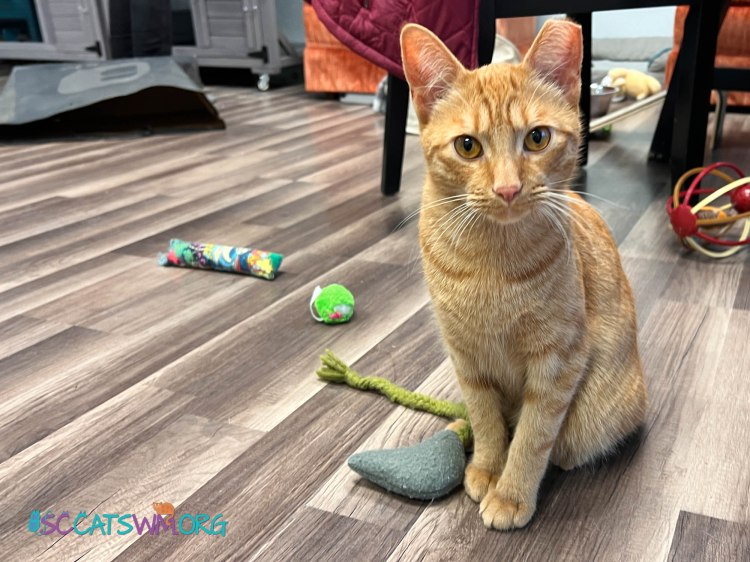
Join us in making a meaningful difference in the lives of these often-overlooked animals. Together, we can help them live safer, healthier lives.
What Are Feral and Stray Cats?

Feral cats are wild cats with little to no contact with humans. They are born and raised without a home or revert to a wild state from being abandoned.
Stray cats differ from domestic cats in that they may have lost their homes. They can interact with humans but may become feral over time.
Both often live together in groups called colonies. At Second Chance Cats, we focus on supporting these cat communities through humane practices and education.
Understanding the Importance of Helping Feral Cats
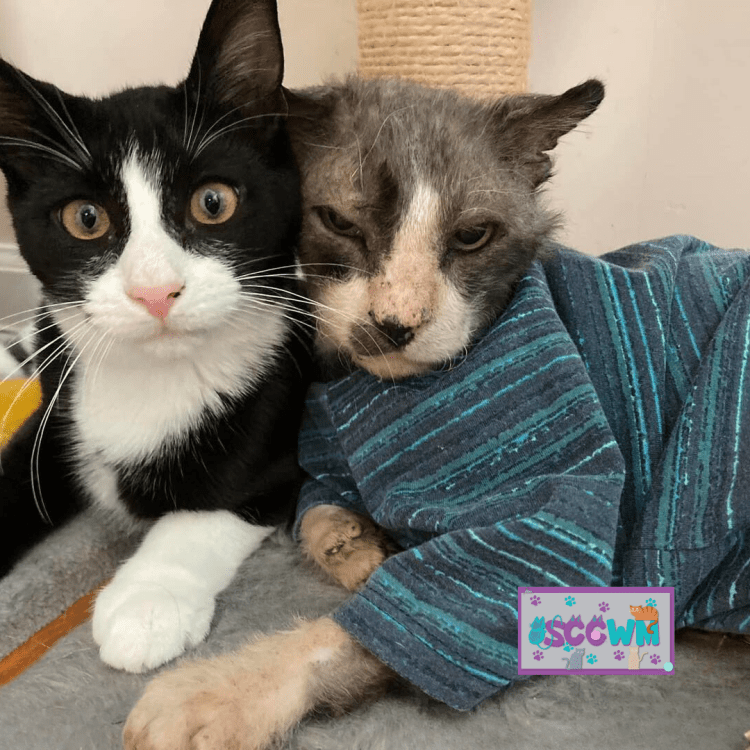
Making life better for feral cats benefits everyone involved. When feral cat colonies are managed well, there’s less noise and fewer territorial disputes. Programs like Trap-Neuter-Return (TNR) help control cat numbers and stop diseases from spreading. Supporting these efforts means smoother relationships between people and cats in our communities.
How to Provide Food and Water Efficiently
Feeding feral cats is crucial but must be done correctly to avoid attracting wildlife or creating messes. We recommend using designated feeding stations to keep food and water tidy and sanitary.
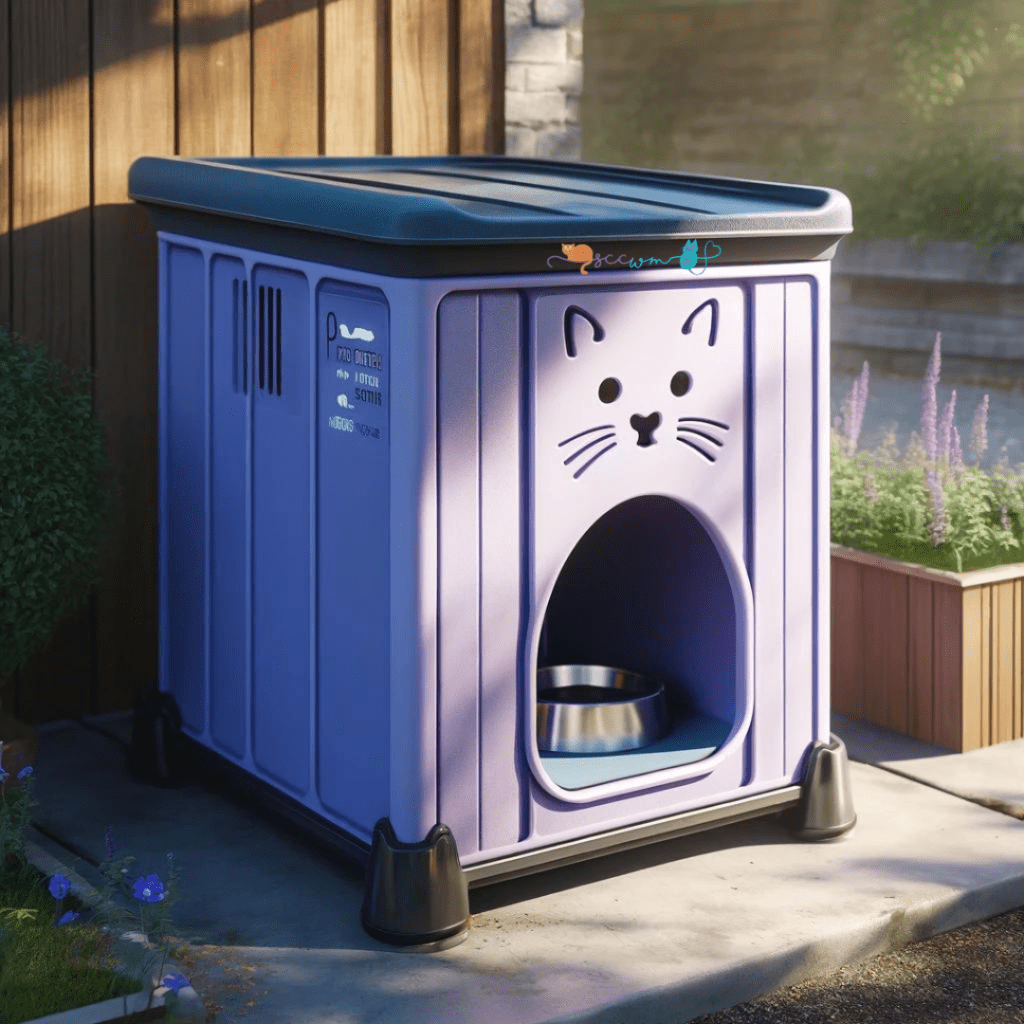
These stations should be sturdy, covered, and placed in discreet locations to protect the cats and the food from bad weather and other animals. Water bowls should be heavy to prevent tipping, and use a heated base to prevent water from freezing in winter months. This method ensures the cats stay hydrated and nourished without encouraging dependency or nuisance.
Building Shelter for Community Cats
Shelters protect feral cats from cold, heat, and rain. Simple wooden boxes or plastic bins with entry and exit holes can be practical. Insulating these shelters with straw (not hay, as hay can mold and cause health issues) helps keep cats dry and warm.
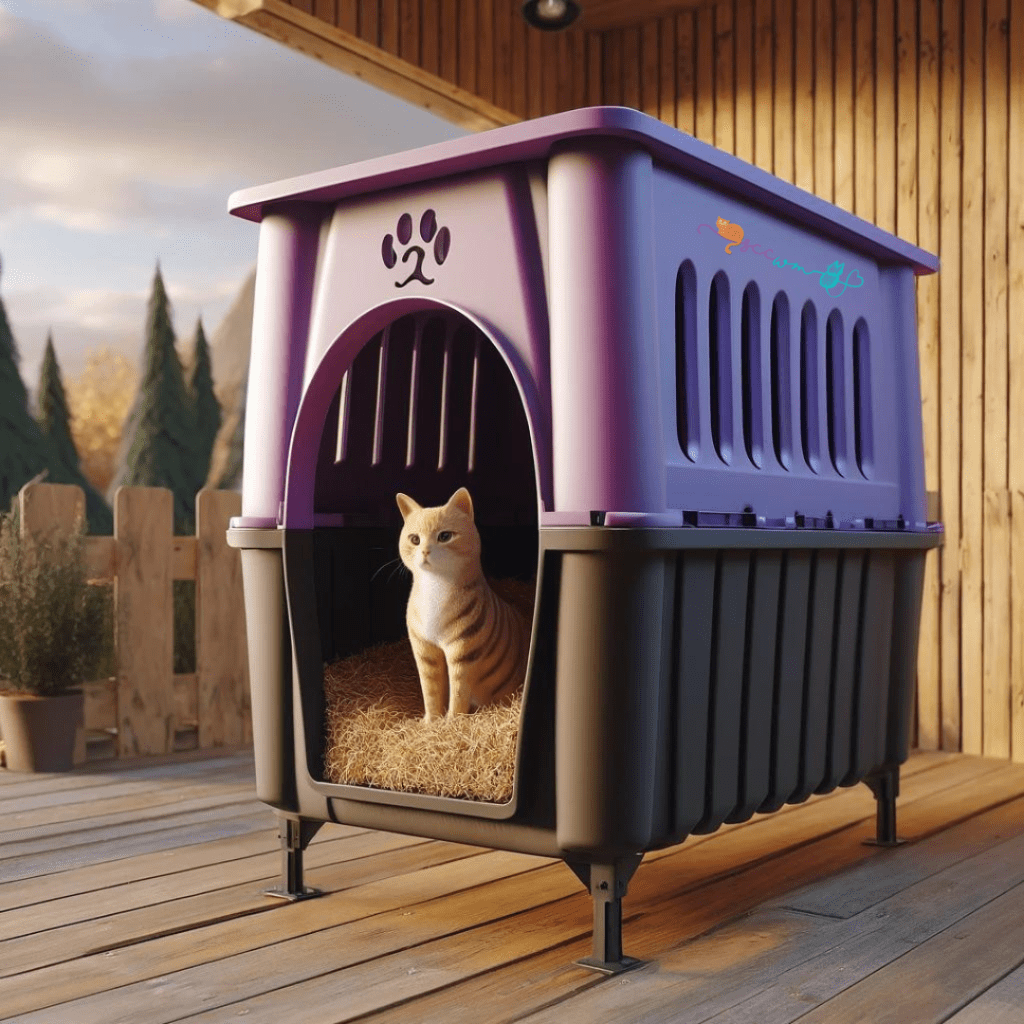
Elevate the shelters to prevent moisture accumulation and protect the opening from prevailing winds.
The Basics of Trap-Neuter-Return (TNR)
Trap-Neuter-Return, or TNR, is a humane approach to managing feral cat populations.

It involves safely trapping the cats, neutering or spaying them, and returning them to their original location. This method prevents the birth of more kittens and reduces common issues like yowling, spraying, and fighting, often related to mating behaviors. Second Chance Cats supports local TNR efforts by providing traps and medical care, ensuring that feral cats live healthier and more peaceful lives.
Caring for Kittens in a Feral Colony
Kittens born in feral colonies need extra care to break the cycle of too many cats. If we socialize them early, preferably before they’re eight weeks old, they’re much more likely to adjust well to living indoors with people.

At Second Chance Cats, we’re dedicated to rescuing, socializing, and finding loving homes for these kittens. Early socialization means giving them gentle care, introducing them to everyday household noises, and creating positive interactions with people. It’s all about preparing them for a happy life away from the wild.
Socializing and Adopting Feral Kittens
Socializing feral kittens takes time and care. We can significantly improve their chances of finding a home by gently handling and exposing them to human interaction in a safe setting. We aim to help them get used to indoor living and being around people, making them less afraid and more comfortable. At Second Chance Cats, we focus on these methods to prepare kittens for loving homes where they’ll be happy and safe.

Health Care for Feral Cats

Feral cats require vaccinations against rabies and feline leukemia, typically administered during TNR procedures. Regular health checks and vaccinations are crucial to manage external and internal parasites, including fleas and worms. These steps ensure that feral cats lead healthier lives and minimize the risk of disease transmission to other animals and humans.
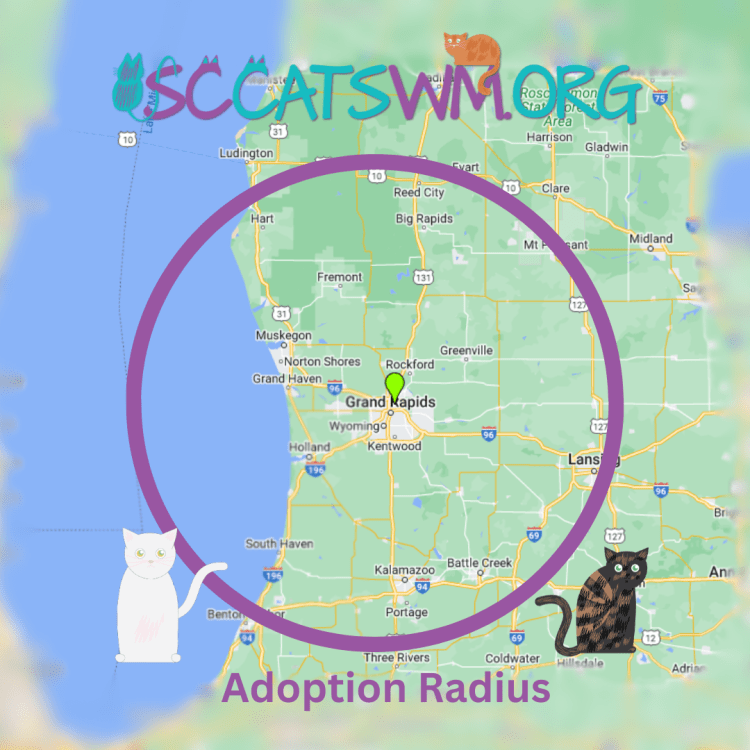
Legal Considerations and Community Relations
Understanding and complying with local ordinances regarding feral cats is essential. This includes regulations on feeding, shelter construction, and TNR. Good community relations are also necessary; educating neighbors about the benefits of TNR and how it helps control the feral cat population can mitigate misunderstandings and conflicts. Second Chance Cats often works as a mediator to foster positive relationships between feral cat caretakers and the local community, ensuring peaceful coexistence.

When we adopt these approaches and work with our community, we can make a big difference in the well-being and stability of feral cat colonies. Second Chance Cats is committed to bettering their lives through practical management and continuous support. Together, we can give feral cats a brighter, safer future.
